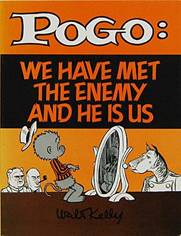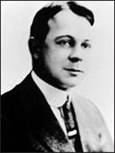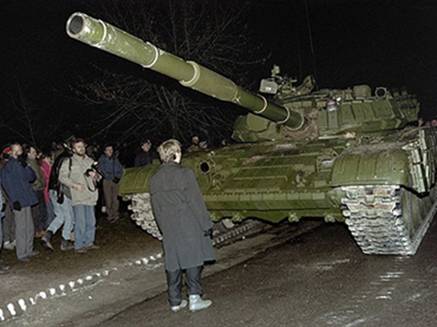
THE VOICE OF INTERNATIONAL LITHUANIA
|
VilNews has its own Google archive! Type a word in the above search box to find any article.
You can also follow us on Facebook. We have two different pages. Click to open and join.
 Click on the buttons to open and read each of VilNews' 18 sub-sections Click on the buttons to open and read each of VilNews' 18 sub-sections  |
- 1.Front page
- 2.About VilNews
- 3.Lithuania today
- 4.Historical Lithuania
- 5.Photos from Lithuania
- 6.Travel Lithuania!
- 7.Lithuania in the world
- 8.The world in Lithuania
- 9.Litvak forum
- 10.Culture and events
- 11.Real estate - architecture
- 12.Business, economy - investments
- 13.Education, research and development
- 14.Sport and leisure
- 15.Health and wellbeing
- 16. Visit markets - Go shopping
- 17.Lithuanian food and beverages
- 18.Hotels and restaurants
Lithuania in the world sidebar
- Posted by - 12716(0) Commenthttps%3A%2F%2Fvilnews.com%2F2012-05-127162012-05-25+13%3A35%3A060df53x21http%3A%2F%2Fvilnews.com%2F%3Fp%3D12716

Rimantas Aukstuolis (see below) believes there are many Lithuanian-Americans who would like to retire in Lithuania, while Gintautas Kaminskas thinks "the shocks" you have to expect makes such an idea less attractive.
I think Rimantas is right that moving here for retirement is a good idea and that you may well enjoy many, many years in your home country's warm embrace. At the same time I give Gintautas right that there are obstacles that could easily topple such plans.
I do therefore offer, hereby, to help anyone who plans to retire in Lithuania. I have lived here for 20 years (I'm originally Norwegian), and I must say that I most of the time have been very pleased and happy.
I've managed to get through the problem areas Gintautas refers to, and I have an infinite number of good friends and interesting tasks that make life here extraordinary interesting and attractive.
I am ready to share my many experiences with you who would like to move here or just visit for shorter periods, and I am willing to tell you which experts you should seek advice from, being it within legal, health care or other fields.
I can also help you to find a new home.
Call me or write me if you find this interesting. To retire in Lithuania is a brilliant idea, and I promise to help you getting things in place in an excellent way.
Warm Regards,
Aage Myhre
Editor-in-Chief
aage.myhre@VilNews.com
____________________________
Makes me wish I were old enough to retire...:)

Jenifer C. Dillis
____________________________
My impression is that many of us Lithuanian-Americans have thought about the possibility of retiring in Lithuania

Rimantas Aukstuolis
Dear Editor,
I enjoy reading VilNews and, VilNews seems to touch on, if not already delve into, a variety of issues which are relevant to someone who may wish to retire in Lithuania. It might be interesting for much of your readership to more sharply focus on specific retirement issues such as comparisons and advantages of retiring in Lithuania, vs. the US. This seems to be evolving as a hot topic in the US as many baby boomers face the reality of high living costs (particularly healthcare) and diminished pension resources.
Detailed and systematic comparisons of living costs, tax issues, health care and real estate ownership might even result in significant "foreign investment" into Lithuania by foreign, especially US retirees. My impression is that many of us Lithuanian-Americans have thought about this possibility. I know several who have taken action. Perhaps such "dreams" should be encouraged with facts, experiences, even government incentives. Thoughts?
Rimantas Aukstuolis
Cleveland, Ohio, USA
____________________________
Trying to retire in Lithuania is in for not just "a shock", but a number of shocks

Gintautas Kaminskas
Rimantas Aukštuolis asks for other readers' on the possibility of retiring in Lithuania. Well, I tried to (2008-9). I'm deliberately not going to go into specific details of my case (that's personal), but I have to say from my experience that any Lithuanian-American (and it's not just Americans, don't forget that there are Lithuanians in other parts of the world, too) who tries to retire in Lithuania is in for not just "a shock", but a number of shocks. By the way, I happen to speak fluent Lithuanian (I am a professional translator). That certainly helps in some ways, but it's no help against the myriad of problems confronting present-day Lithuania, which are mostly to do with the lingering Soviet mentality ("naglumas - antra laimė").
Living costs are lower there, but the health care system is a nightmare. You won't even get the health care you're entitled to as a Lithuanian citizen without paying bribes, and as a foreigner you're "fair game". Real estate ownership? Make sure you have a very good lawyer. Government incentives? Which Government? The Lithuanian Government? As the kids say these days: "LOL". From the lowliest local or State government officials right up to some Seimūnai (Members of Parliament) and Cabinet Ministers - corruption reigns. They enter Government "service" asking not what they can do for their country but what they can get for No. 1. (For anyone not familiar with the English idiom - No. 1 is "moi", me, myself, I - and my family and friends and clan to some extent.) That's the reality. You only need to follow the Lithuanian media to realise that what I'm saying is the truth and no exaggeration.
Just for the record, I am still in love with my native land and would still love to live there: theoretically (lengthy visits will have to suffice). It's green, beautifully uncrowded, lots of nice lakes and streams, and I have no problem with the climate, not even in winter. It's wonderful to meet thoughtful Lithuanians and to communicate with them in our native language. But .... see above.
Gintautas Kaminskas
____________________________
An issue for elderly seeking to reconnect with families and younger professionals who seek to participate in the economies

Tony Mazeika
Relocation back to Lithuania will only be an issue for elderly seeking to reconnect with families and younger professionals who seek to participate in the economies. The vast majority of "diaspora" have citizenship from their adopted nations like the US, Canada, Australia. Ironically, the real issue is the continuing alarming emigration of young educated from Lithuania to the UK, US, Canada, etc. The numbers are a threat to the developing economy and future political stability of Lithuania. That void could be made up with people within the EU including Muslims.
Tony Mazeika
California
- Bookmark :
- Digg
- del.icio.us
- Stumbleupon
- Redit it
I can only hope that we all will work together
- Posted by - 12698(0) Commenthttps%3A%2F%2Fvilnews.com%2F2012-05-i-can-only-hope-that-we-all-will-work-togetherI+can+only+hope+that+we+all+will+work+together2012-05-25+13%3A10%3A550df53x21http%3A%2F%2Fvilnews.com%2F%3Fp%3D12698
![]()

I was raised to have a very positive view of our ancestral homeland, and hope that we can avoid polarizing Emigres and Lithuanian citizens. I have always felt welcome when I visit, but have personally never attempted to do business. This could be a difficult process, and one that creates tension. I can only hope that we all work together for a successful and sustainable economy.
Jurate Kutkus Burns,
Florida, USA
- Bookmark :
- Digg
- del.icio.us
- Stumbleupon
- Redit it
“We have met the enemy and he is us!”
- Posted by - 4123(0) Commenthttps%3A%2F%2Fvilnews.com%2F2012-05-i-quote-the-pogo-cartoon-paraphrase-of-perry-we-have-met-the-enemy-and-he-is-us%E2%80%9CWe+have+met+the+enemy+and+he+is+us%21%E2%80%9D2012-05-25+13%3A00%3A270df53x21http%3A%2F%2Fvilnews.com%2F%3Fp%3D4123
![]()

Dear Editor
There has been a lot of negative commentary in Vilnews recently from some of your readers and even from Regina Narusiene in the recent piece about the need for change in attitudes toward what the Lithuanian diaspora can do for the country and what volunteerism can do within Lithuania. I guess I don't disagree at all, however…
Sitting here on the shores of Lake Erie in Cleveland I'm reminded of the battle flag of Commander Oliver Hazard Perry, USN during the decisive battle of Lake Erie during the War of 1812. On the blue flag were the words "Don't Give Up the Ship" which he had to transfer from his sinking flagship to the sistership, Niagara. Commander Perry ultimately won that battle against the Royal Navy and altered the military balance on the Great Lakes. In his report to superiors he stated "We have met the enemy and they are ours".
To all my Lithuanian friends and friends of Lithuania I exhort "Don't Give Up the Ship" . And especially to my Lithuanian friends I quote the "Pogo" cartoon paraphrase of Perry " We have met the enemy and he is us!" Maybe our modern Lithuanian example of heroism needs to be Bishop Valancius who came to the conclusion that in the mid 19th century Lithuanians needed to sober up before they came to any national reawakening or effective resistance to Russian domination.
Dealing with Russian occupation, as difficult as it was, may have been easier than dealing with ourselves. But we have sort of been here before, haven't we? Onward!
Rimantas Aukstuolis,
Cleveland, Ohio, USA
- Bookmark :
- Digg
- del.icio.us
- Stumbleupon
- Redit it
The 2nd FBI Director (1912-1919)
- Posted by - 774(0) Commenthttps%3A%2F%2Fvilnews.com%2F2011-01-the-2nd-fbi-director-1912-1919The+2nd+FBI+Director+%281912-1919%292011-01-09+13%3A44%3A320df53x21http%3A%2F%2Fvilnews.com%2F%3Fp%3D774
 Lithuanian-American Alexander Bruce Bielaski was born in Montgomery County, Maryland. He received a law degree from George Washington University in 1904 and joined the Department of Justice that same year. Like his predecessor Mr. Finch, Mr. Bielaski worked his way up through the department. He served as a special examiner in Oklahoma where he “straightened out the court records” and aided in the reorganization of Oklahoma’s court system when the Oklahoma territory became a state. Returning to Washington, Mr. Bielaski entered the Bureau of Investigation and rose to become Mr. Finch’s assistant. In this position he was in charge of administrative matters for the Bureau. At the end of April 1912, Attorney General Wickersham appointed Mr. Bielaski to replace Mr. Finch. As chief, Mr. Bielaski oversaw a steady increase in the resources and responsibilities assigned to the Bureau. Read more…
Lithuanian-American Alexander Bruce Bielaski was born in Montgomery County, Maryland. He received a law degree from George Washington University in 1904 and joined the Department of Justice that same year. Like his predecessor Mr. Finch, Mr. Bielaski worked his way up through the department. He served as a special examiner in Oklahoma where he “straightened out the court records” and aided in the reorganization of Oklahoma’s court system when the Oklahoma territory became a state. Returning to Washington, Mr. Bielaski entered the Bureau of Investigation and rose to become Mr. Finch’s assistant. In this position he was in charge of administrative matters for the Bureau. At the end of April 1912, Attorney General Wickersham appointed Mr. Bielaski to replace Mr. Finch. As chief, Mr. Bielaski oversaw a steady increase in the resources and responsibilities assigned to the Bureau. Read more…
- Bookmark :
- Digg
- del.icio.us
- Stumbleupon
- Redit it
Lithuania needs writing in English
- Posted by - 2012(1) Commenthttps%3A%2F%2Fvilnews.com%2F2011-01-lithuania-needs-writing-in-englishLithuania+needs+writing+in+English2011-01-07+13%3A08%3A340df53x21http%3A%2F%2Fvilnews.com%2F%3Fp%3D2012
Andrius Užkalnis
I am positive that Lithuania - not only the expats who live there - need writing in English. A lot of it. As much as possible, really.
The presence of a vibrant expat community, which is closely linked with Lithuanians or half-Lithuanians (if I may use this term), who have spent many years overseas and had been exposed to Western culture, is critical as an ultimate mind-opener.
I have always been going against the flow in that I said good things about the Lithuanians who go abroad for a year, for five years or even for good. In Lithuania, it is often seen as a disaster and an exodus of biblical proportions with similarly apocalyptic implications. I see it as a natural part of being a free country. Even if it leads to some transformations that may even be irreversible, such as compromises over what is seen as Lithuanian ethnic purity (which is an artificial and doubtful construct anyway, in my view) or a changer of the Lithuanian identity, emigration is good because it opens the mind and creates new patterns of thinking. It opens up angles which people have not thought about. It changes the way that parts of the society interact with each other and their relationship with the government, the establishment, the educational elite.
A confident and active expat community brings all this to their host land too, and does this in a concentrated and very effective manner. The English-speaking expat crowd is bringing values and behaviours that Lithuania needs the most: perceived and often imaginary "Americanization" is mostly skin-deep and has little lasting impact. And this is why any exchange of written words is so critical.
About two decades ago, I was one of the first employees of "Vilnius In Your Pocket", a city guide started by four expats in Vilnius. VIYP at that time it was the Bible for all English-speaking local residents, witty and bright and colourful, and a brilliant contrast to the drab surroundings of early post-Soviet Vilnius. It no longer holds the exclusive position of cult publication, but its impact is still remembered by those who remember the English-speaking Vilnius 20 years ago. There was also The Baltic Independent, a Tallinn-based English newspaper for which Edward Lucas, today of the Economist fame, was writing - there was a little office in Liauksmino gatve and I was a writer there. Edward lived in Vilnius at that time.
It is, therefore, impossible to say no when people ask me to get involved with the writing for English speakers in Lithuania. So I wish the Editor-In-Chief perseverance in chasing articles from contributors and I wish the publication a huge readership of intelligent and curious people. God speed.
- Bookmark :
- Digg
- del.icio.us
- Stumbleupon
- Redit it
How US journalists helped stop Russian tanks in Vilnius
- Posted by - 2020(0) Commenthttps%3A%2F%2Fvilnews.com%2F2011-01-how-us-journalists-helped-stop-russian-tanks-in-vilniusHow+US+journalists+helped+stop+Russian+tanks+in+Vilnius2011-01-06+13%3A13%3A510df53x21http%3A%2F%2Fvilnews.com%2F%3Fp%3D2020
![]()
Rita Stankeviciute
Lietuvos Rytas Correspondencet in Washington
January 15, 2011

How much more blood would have been shed in Lithuania, had news about
the Soviet aggression not reached the outside world? In commemorating
January 13, US journalists still wonder why the Soviets did not expel
them from Vilnius.
“If we had been unable to continue broadcasting, no one knows what would
have happened” stated former US National Public Radio correspondent Ann
Cooper, who was reporting on events in Lithuania 20 years ago.
“It’s always easier to inflict violence when there are no witnesses
around. In Vilnius, there were a lot of witnesses,” stated former
Newsweek Warsaw Bureau Chief, Andrew Nagorski.
On January 13, 2011, Americans gathered in Washington for the filming of
a broadcast on the role of Western media during the events of January
1991 in Vilnius. The show would air on Lithuanian television in Vilnius
the following week.
They were afraid to tarnish their reputations
It was a time when telephone calls were routed through Moscow,
information had to be faxed or transmitted via teletype, and news about
Lithuania was transmitted around the world from the basements of ham
radio operators.
David Satter, a Soviet Affairs correspondent for the influential
newspaper, The Wall Street Journal, hurried to Vilnius a few days after
the events of Bloody Sunday.
The number of journalists in the building of the Supreme Council kept
growing. Satter felt that Mikhail Gorbachev delayed his offensive for
that very reason.
"He was not a typical Soviet leader. His predecessors knew not to get
too friendly with the West and become dependent upon their opinion.
But Gorbachev was obsequious with leaders of the Western world so he was
afraid to behave poorly in their eyes.
Gorbachev realized that aggression in Lithuania would discredit him
completely. I think that made an impact,” said David Satter in an
interview with Lietuvos Rytas.
Images reached congress
Images of tanks attacking unarmed people and buzzing bullets quickly
reached the United States.
The Lithuanian-American community did everything possible to make sure
that these images reached television audiences and important policy
makers.
New York Lithuanians gave a recording to their Congressional
representative, Gary Ackerman, who showed pictures from Lithuania to the
entire U.S. Congress. “This helped to mobilize the House of
Representatives and the Senate” said Washington Lithuanian-American
community activist Asta Banionis.
Dan Ritter, a Congressman at the time, described how difficult it was to
draw the attention of the White House to events in Lithuania because
then U.S. President George Bush senior, even after the declaration of
independence in 1990, was in no hurry to recognize independent
Lithuania.
Just as Dan Ritter flew immediately to Vilnius, so did other members of
the Congressionally created Commission on Security and Cooperation in
Europe still known as the Helsinki Commission.
"We wanted to show that the people and the state of Lithuania were
important to the US, despite contradictory comments coming out of the
White House.
U.S. authorities did not necessarily support the idea of a free and
independent Lithuania. But the Helsinki Commission was convinced that
the empire was in its death throes, "said Ritter.
A caricature appeared in one US publication showing Gorbachev in a
Soviet tank headed to Lithuania. A passerby picks up something from the
side of the road and says "Oops, I think someone just lost a Nobel Peace
Prize."
Holed Up In a Lithuanian Apartment
When news reached Washington from Rita Dapkute, an employee of the
Lithuanian Supreme Council, that the building was full of foreign
correspondents, American Lithuanians tried to inform the Soviet Embassy
of this fact.
"So they would know that if the Supreme Council was attacked,
representatives of the foreign media would be killed, too" explained
Asta Banionis.
Foreigners working in Vilnius were less concerned with their safety than
they were with possibly being expelled from Lithuania. It could happen
at any moment because most foreigners were accommodated at one hotel,
"The Tourist" so that the Soviets could track their movements more
easily.
"We kept wondering when they were going to come and surround us.” Peter
Gumbel of The Wall Street Journal found a Lithuanian family who housed
them in an apartment near the Parliament. About eight of us slept on the
floor there. We shared their telephone and their bathroom.
“I kept calling Moscow to ask to be connected to my editor because I
felt that I was preparing what could be the most important report of my
life" recalled Ann Cooper.
The Lithuanian Legation in Washington
Regardless of the important role that the media may have played in
Lithuania's independence, the U.S. journalists underscored that without
the absolute unity of the people, nothing would have been able to stop
the killing.
"I received a call from then Ambassador (Charge d’Affaires) of Lithuania
in Washington, Stasys Lozoraitis, Jr., who said that the people refused
to leave even after being fired upon.
I turned around to the Secretary of State James Baker to say that maybe
it was time to think about opening an American embassy in Lithuania.
Because no one has enough bullets to stop those who are not afraid of
them" stated Paul Goble, then special adviser to the Baltic countries
for the U.S. State Department.
Witnesses to Other dramas in Vilnius
"The Soviet leaders realized that in order to subjugate Lithuania they
would have to kill many people, and still they would not succeed.
In January 1991, they understood that they could go no further, and that
it was time for the Soviet Union to bid farewell to Lithuania" concluded
Dave Satter about these dramatic events..
- Bookmark :
- Digg
- del.icio.us
- Stumbleupon
- Redit it
OPINIONS
Have your say. Send to:
editor@VilNews.com
Ph. D., Chicago
A wave of unity sweeps the international Lithuanian community on March 11th every year as Lithuanians celebrated the anniversary of the Lithuanian Parliament's declaration of independence from the Soviet Union in 1990. However, the sense of national unity engendered by the celebration could be short-lived.
Human beings have a strong tendency to overgeneralize and succumb to stereotypical us-them distinctions that can shatter even the strongest bonds. We need only search the internet to find examples of divisive thinking at work:
- "Those who fled Lithuania during World II were cowards -- and now they come back, flaunt their wealth, and tell us 'true Lithuanians' how to live."
- "Lithuanians who work abroad have abandoned their homeland and should be deprived of their Lithuanian citizenship."
In Lithuania Christmas Eve is a family event and the New Year's Eve a great party with friends!
Lithuanian say "Kaip sutiksi naujus metus, taip juos ir praleisi" (the way you'll meet the new year is the way you will spend it). So everyone is trying to spend New Year's Eve with friend and have as much fun as possible.
Lithuanian New Year's traditions are very similar to those in other countries, and actually were similar since many years ago. Also, the traditional Lithuanian New Years Eve party was very similar to other big celebrations throughout the year.
The New Year's Eve table is quite similar to the Christmas Eve table, but without straws under the tablecloth, and now including meat dishes. A tradition that definitely hasn't changes is that everybody is trying not to fell asleep before midnight. It was said that if you oversleep the midnight point you will be lazy all the upcoming year. People were also trying to get up early on the first day of the new year, because waking up late also meant a very lazy and unfortunate year.
During the New Year celebration people were dancing, singing, playing games and doing magic to guess the future. People didn't drink much of alcohol, especially was that the case for women.
Here are some advices from elders:
- During the New Year, be very nice and listen to relatives - what you are during New Year Eve, you will be throughout the year.
- During to the New Year Eve, try not to fall, because if this happens, next year you will be unhappy.
- If in the start of the New Year, the first news are good - then the year will be successful. If not - the year will be problematic.
* If New Year's night is cold and starry - look forward to a good summer!
* If the during New Year Eve trees are covered with frost - then it will be a good year. If it is wet weather on New Year's Eve, one can expect a year where many will die and dangerous epidemics occur.
* If the first day of the new year is snowy - the upcoming year will see many young people die. If the night is snowy - mostly old people will die.
* If the New Year time is cold - then Easter will be warm.
* If during New Year there are a lot of birds in your homestead - then all year around there will be many guests and the year will be fun.
Christmas greetings
from Vilnius
and epic battle for the
future

Philosopher, political theorist, historian of
ideas, social analyst, and political
commentator
Ukraine was and continues to be perceived by the EU political class as a sort of grey zone with its immense potential and possibilities for the future, yet deeply embedded and trapped in No Man's Land with all of its troubled past, post-Soviet traumas, ambiguities, insecurities, corruption, social divisions, and despair. Why worry for what has yet to emerge as a new actor of world history in terms of nation-building, European identity, and deeper commitments to transparency and free market economy?
Right? Wrong. No matter how troubled Ukraine's economic and political reality could be, the country has already passed the point of no return. Even if Vladimir Putin retains his leverage of power to blackmail Ukraine and the West in terms of Ukraine's zero chances to accede to NATO due to the problems of territorial integrity, occupation and annexation of Crimea, and mayhem or a frozen conflict in the Donbas region, Ukraine will never return to Russia's zone of influence. It could be deprived of the chances to join NATO or the EU in the coming years or decades, yet there are no forces on earth to make present Ukraine part of the Eurasia project fostered by Putin.
want to learn about the
new, scary propaganda
war between Russia,
The West and the
Baltic States!
believe their government
is corrupt

students say no to
bribes for doctors


During Soviet times, government was administered for the people in control, not for the local population, court decisions were decreed, they were not the administration of justice, and academia was the domain of ideologues. 25 years of freedom and openness should have put those bad experiences behind Lithuania, but that is not so.
Today, it is a matter of expectation that court pronouncements will be governed by ideological dictates. Few, if any Lithuanians expect real justice to be effected. For foreign companies, doing business in Lithuania is almost impossible in a situation where business people do not expect rule of law, so, surely Government would be a refuge of competence?
Lithuanian Government has not emerged from Soviet styles. In an attempt to devolve power, Lithuania has created a myriad of fiefdoms of power, each speaking in the name of the Government, each its own centralized power base of ideology.

Chepstow, Wales
Doesn't that sound suspiciously like Lithuania? Ah, but I didn't mention the mountains of Snowdonia, which would give the game away.
I'm talking about Wales, that part of the UK which Lithuanians used to call "Valija", but later named "Velsas" (why?). Wales, the nation which has welcomed two Lithuanian heads of state to its shores - firstly Professor Vytautas Landsbergis, who has paid several visits and, more recently, President Dalia Grybauskaitė who attended the 2014 NATO summit which was held in Newport, South Wales.
ENGLISH VERSION OF THE
AUTOBIOGRAPHY OF VYTAUTAS LANDSBERGIS.


Although Lithuanian activities have thinned over the decades as that postwar generation died out, the Lithuanian Martyrs' parish hall is crowded with many, many hundreds of visitors who come to the Lithuanian cemetery for All Souls' Day. Similarly, the Franciscan parish has standing room only for Christmas Eve mass.
Although I am firmly embedded in the literary culture of Canada, my themes are usually Lithuanian, and I'll be in Kaunas and Vilnius in mid-November 2015 to give talks about the Lithuanian translations of my novels and short stories, which I write in English.
If you have the Lithuanian language, come by to one of the talks listed in the links below. And if you don't, you can read more about my work at
www.anatanassileika.com
http://www.vdu.lt/lt/rasytojas-antanas-sileika-pristatys-savo-kuryba/ https://leu.lt/lt/lf/lf_naujienos/kvieciame-i-rasytojo-59hc.html

"My love and best wishes to all. As long as VilNews exists, there is hope for the future,"" she writes.
Irena Veisaite means very much for our publication, and we do hereby thank her for the support and wise commitment she always shows.
You can read our interview with her
Facing a new reality

Dear readers of VilNews,
For a number of years, the EU and Russia had assumed the existence of a strategic partnership, based on the convergence of values, economic integration and increasingly open markets and a modernisation agenda for society.
Our agenda was positive and ambitious. We looked at Russia as a country ready to converge with "European values", a country likely to embrace both the basic principles of democratic government and a liberal concept of the world order. It was believed this would bring our relations to a new level, covering the whole spectrum of the EU's strategic relationship with Russia.
The likelihood of Putin
invading Lithuania
.jpg)
Founding Director at Summer Literary Seminars
Are all Lithuanian energy
problems now resolved?

Lithuania as a country does not have significant energy resources. Energy consuming infrastructure after WWII was small and totally supported by energy imports from Russia.
First nuclear reactor begins power generation at Ignalina in 1983, the second reactor in 1987. Iganlina generates enough electricity to cover Lithuania's needs and about 50%.for export. As, prerequisite for membership in EU, Ignalina ceases all nuclear power generation in 2009
The Klaipėda Sea terminal begins Russia's oil export operations in 1959 and imports in 1994.
Mazeikiu Nafta (current ORLEAN Lietuva) begins operation of oil refinery in 1980.
Have Lithuanian ties across
the Baltic Sea become
stronger in recent years?

The two decades that have passed since regaining Lithuania's independence can be described as a "building boom". From the wreckage of a captive Soviet republic, a generation of Lithuanians have built a modern European state, and are now helping construct a Nordic-Baltic community replete with institutions intended to promote political coordination and foster a trans-Baltic regional identity. Indeed, a "Nordic-Baltic community" - I will explain later in my text the meaning of this catch-phrase.
Since the restoration of Lithuania's independence 25 years ago, we have continuously felt a strong support from Nordic countries. Nordics in particular were among the countries supporting Lithuania's and Baltic States' striving towards independence. Take example of Iceland, country which recognized Lithuania in February of 1991, well in advance of other countries. Yet another example - Swedish Ambassador was the first ambassador accredited to Lithuania in 1991. The other countries followed suit. When we restored our statehood, Nordic Countries became champions in promoting Baltic integration into Euro-Atlantic institutions. To large degree thanks Nordic Countries, massive transformations occurred in Lithuania since then, Lithuania became fully-fledged member of the EU and NATO, and we joined the Eurozone on 1 January 2015.

Have you heard about the
South African "Pencil Test"?

But that is exactly what happened to me when I came back from South Africa. I will tell you how.
VilNews e-magazine is published in Vilnius, Lithuania. Editor-in-Chief: Mr. Aage Myhre. Inquires to the editors: editor@VilNews.com.
Code of Ethics: See Section 2 – about VilNews. VilNews is not responsible for content on external links/web pages.
HOW TO ADVERTISE IN VILNEWS.
All content is copyrighted © 2011. UAB ‘VilNews’.







